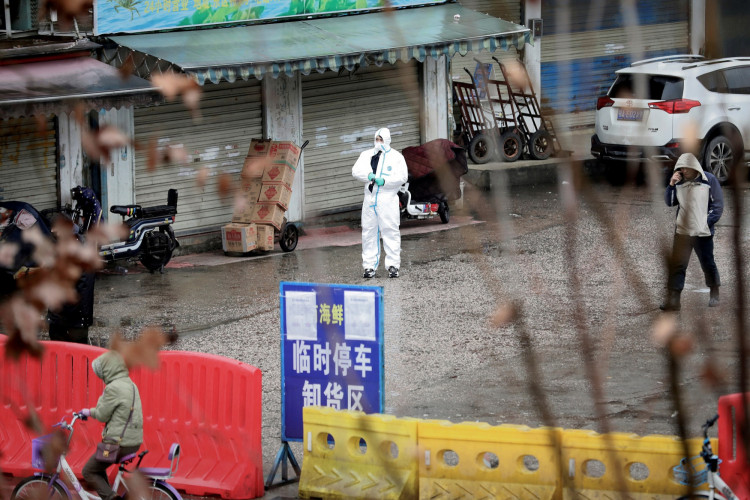A new study, which based its finding on public accounts of the spread of COVID-19 in China, has determined that the World Health Organization's initial account of the chronology of the disease may be wrong. The new analysis suggests that the first person to have contracted the disease may not have been an accountant but a vendor at a large animal market in Wuhan.
The report, which was published in the journal Science Thursday, could revive the debate over the true origins of the coronavirus and how it had managed to spread from animals to humans. The study may also finally put an end to the speculation that the virus may have come from a leak from the Wuhan virology lab.
By combing through what had already been made public in medical journals, as well as video interviews in a Chinese news outlet with people believed to have the first two documented infections, Michael Worobey, a leading expert in tracing the evolution of viruses at the University of Arizona, discovered some timeline discrepancies in initial studies.
In his research, Worobey implied that the vendor's ties to the Huanan Seafood Wholesale Market, as well as a new examination of the initial hospitalized patients' connections to the market, strongly imply that the pandemic started there.
WHO researchers said Dr. Worobey's investigative work was sound, with most agreeing that the first documented case of Covid was most likely a seafood vendor at the animal market.
However, several scientists also argued that the data provided was insufficient to definitively answer the bigger question of how the epidemic started. They speculated that the virus likely infected another "patient zero" before infecting the vendor.
In December 2019, doctors at various Wuhan hospitals began to observe unusual cases of pneumonia in people who worked at the Huanan Seafood Wholesale Market, a dark and poorly ventilated place where seafood, poultry, pork, and wild animals were sold. Hospitals were advised on Dec. 30 to report any new cases related to the market by public health officials.
Fearing a repeat of SARS, which arose from Chinese animal markets in 2002, Chinese officials ordered the Huanan market to shut down on Jan. 1, 2020. Despite these precautions, additional cases continued to emerge in Wuhan.
By the spring of 2020, senior Trump administration officials were advocating a different theory for the pandemic's origins. Officials speculated that the virus may have escaped from the Wuhan Institute of Virology, a campus about eight miles from the Huanan market.
In January of this year, WHO-selected researchers traveled to China to meet an accountant who had purportedly acquired symptoms on Dec. 8. He was reported as the first known victim of the coronavirus.





